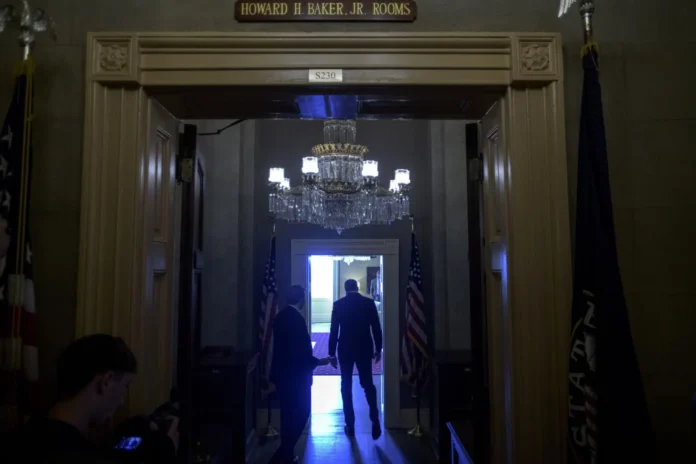The clawback battle intensifies in Washington as lawmakers race toward a final vote on President Donald Trump’s multibillion-dollar rescissions plan. After dramatic late-night delays and surprise GOP defections, the Senate is now locked in a heated “vote-a-rama” that could determine the bill’s fate.
Wednesday began with hours of intense debate over Trump’s $9 billion proposal. The bill aims to reclaim unused or unspent federal funds, including billions from foreign aid and public broadcasting. Lawmakers are now proposing unlimited amendments, stretching the process well into the evening.
The plan seeks to cut $8 billion from the U.S. Agency for International Development and more than $1 billion from the Corporation for Public Broadcasting. Supporters argue these cuts target bloated and unnecessary programs. Opponents see the plan as reckless and poorly explained.
Republicans have praised the bill. They say it fulfills voter demands to reduce government waste and eliminate “woke” programs. Senate Democrats, however, strongly oppose the cuts. They accuse Republicans of ceding legislative power to the White House without proper oversight.
Senate Minority Leader Chuck Schumer criticized the bill’s vague implementation. He warned that the Office of Management and Budget has failed to clarify how the cuts would be applied. “We should not just rubber-stamp executive demands,” Schumer said. “This chamber must legislate, not obey.”
Senate Majority Whip John Barrasso pushed back. He said Democrats were exaggerating the impact of the bill. “Republicans are protecting emergency alert systems,” he said. “Democrats are defending electric buses in Africa.”
To win support, GOP leaders removed $400 million in global HIV/AIDS cuts. Despite this change, three Republican senators—Lisa Murkowski, Susan Collins, and Mitch McConnell—broke ranks. Their defections forced Vice President JD Vance to cast two tie-breaking votes.
Murkowski spoke bluntly on the Senate floor. “We’re lawmakers, not order-takers,” she said. Collins echoed those concerns. She noted that Congress lacks basic information about which programs would face cuts.
McConnell remained undecided. He supported the idea of reducing spending but criticized the lack of transparency. “This feels like a blank check,” he said. “They need to make their case before asking for cuts.”
The clawback battle intensifies as the Senate moves toward another lengthy round of votes. More amendments are expected before the final decision. JD Vance may need to intervene again if the vote remains razor-thin.
Lastly, Lawmakers on both sides agree on one thing: the stakes are high. This vote could redefine the balance between Congress and the executive branch. It could also shape future budget negotiations.
In a polarized Senate, compromise remains difficult. Still, the final outcome will reveal how far lawmakers are willing to go in the name of fiscal discipline.
As the clawback battle intensifies, America watches closely
For more political updates, visit DC Brief.


